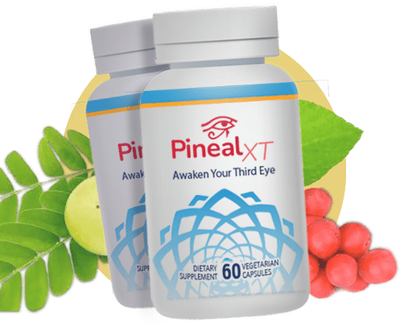Sugar Defender Review: In the extensive world of dietary supplements, Sugar Defender has managed to carve out a notable niche for itself. This product promises not only to offer support for healthy blood sugar levels but also to improve overall health and vitality. The focus of this article is a comprehensive review of this product – from its touted benefits to user experiences and potential side effects.
Table of Contents
Introduction to Sugar Defender
Sugar Defender positions itself as a powerful yet natural solution for managing blood sugar levels. It’s essentially a dietary supplement, but not in the conventional sense. Instead of offering temporary relief or suppressing symptoms, it aims for long-term improvement by targeting the root cause of raised sugar levels.
The concept behind its working mechanism is simple – provide the body with necessary nutrients that it might be lacking, leading to improved glucose metabolism and better blood sugar readings over time. That being said, Sugar Defender is not a magic pill; it’s designed to complement a balanced lifestyle and diet in order to maximize results.
What sets Sugar Defender apart from its competitors are the ingredients used in its formulation. All components are claimed to be completely natural and devoid of synthetic elements, reducing the possibility of adverse reactions while ensuring safe consumption. Equally important, these ingredients also work synergistically, enhancing each other’s beneficial properties and potentially providing an all-day energy boost along with several other health benefits.
The main goal of Sugar Defender is not just about managing blood sugar levels either, it’s about fostering holistic wellness. Many users have praised the product for its ability to reduce hunger pangs and promote elevated energy levels throughout the day.
Furthermore, Sugar Defender’s appeal goes beyond just its functional benefits. The brand prides itself on strict quality controls during production and substantial scientific research backing its formulation. This offers consumers an added layer of assurance regarding its efficacy and safety.
Throughout this article, we’ll take a deeper dive into the various aspects of Sugar Defender; from the relevance of its components to user testimonials and professional evaluations. More importantly, we will maintain a balanced perspective; acknowledging both its advantages and potential downsides. So whether you’re considering starting on Sugar Defender or simply curious about what it has to offer, this review is for you. Stay tuned as we unravel the mystery behind this unique dietary supplement.“`
Overview of Product Makeup
Sugar Defender is a dietary supplement that touts a wide array of natural ingredients in its formula. To truly understand the effectiveness potential of this product, it’s essential to delve into these components and how they contribute towards managing blood sugar levels, as well as promoting health benefits.
The first standout ingredient in the Sugar Defender makeup is chromium, an essential trace mineral known for its role in aiding insulin function in the body. This doesn’t just help with managing blood sugar levels but could also potentially reduce hunger and aid weight management. Moreover, chromium has been linked to increased energy production within cells, which means you’ll likely enjoy an all-day energy boost while on this supplement.
The formula also includes Bitter Melon extract, a traditional medicine staple known for its ability to lower blood sugar levels naturally. Clinical studies indicate that Bitter Melon can improve the body’s capacity to use glucose effectively, thus reducing insulin resistance over time.
Another key component is Cinnamon bark powder. Research has shown that Cinnamon bark has potent anti-oxidative properties which not only help protect cells from oxidative stress but also increase insulin sensitivity, making this spice an effective blood sugar regulator.
Alpha Lipoic Acid (ALA), another constituent of Sugar Defender, is often referred to as a universal antioxidant because of its ability to quench free radicals both inside and outside cells. ALA has proven beneficial in improving insulin sensitivity and therefore play a crucial role in keeping blood sugar levels in check.
Gymnema Sylvestre, a woody vine native to India and Africa, is equally notable for its hypoglycemic properties. This plant extract reduces the absorption of sugar from the intestines leading to lower post-meal blood glucose spikes.
Fenugreek seeds powder, a common ingredient in Indian cuisine, has been included for its proven ability to slow down the absorption of sugars in the stomach and stimulate insulin release. This results in a dual effect – lower blood sugar levels and increased glucose tolerance.
The rest of the ingredients list comprises Banaba Leaf, Vanadium, and Guggul – each with their unique health benefits extending beyond just blood sugar regulation. These components work synergistically within the body to enhance the effects of other key ingredients, subsequently boosting overall efficiency of this dietary supplement.
It’s clear that Sugar Defender has been formulated using natural ingredients well-known for their individual health benefits. When combined, they potentially create a supplementary product that not only manages blood sugar but also promotes all-around wellness. From quelling hunger pangs to elevating energy levels throughout the day, every element incorporated into Sugar Defender plays an important role.
However, it’s important to remember that while these ingredients have been backed by scientific research individually, it doesn’t necessarily mean they’ll work together seamlessly for everyone in practice. Ultimately, individual reactions can vary based on personal physiology and lifestyle factors.
Testimonials of Users: Positive Experiences
One of the key aspects to understanding any dietary supplement’s effectiveness and reputation is hearing from those who have tried it firsthand. Numerous Sugar Defender users have come forth sharing their personal journeys, and the consensus seems to paint a largely positive picture.
Taking into consideration various testimonials across different platforms, many consumers report feeling a noticeable increase in their energy levels after starting on Sugar Defender. Some users have shared how they no longer experience the post-meal lethargy that was previously a regular occurrence for them. Instead, they feel empowered with sustained energy throughout the entire day.
This general rise in vitality is often accompanied by reports of reduced hunger pangs. Users attest to having less frequent cravings and more control over their appetite since starting on this product. This, in turn, has aided many in managing their weight – an additional benefit that goes hand-in-hand with maintaining healthy blood sugar levels.
Beyond its direct influence on energy and hunger, some user testimonials also highlight improved blood sugar readings over time. Several diabetics have praised Sugar Defender for helping them maintain healthier glucose levels, reducing their typical peaks and troughs.
The reviews reflect not only on its function but also its simplicity and ease of usage. Many users appreciate the liquid drop form which allows easy dosage adjustment compared to traditional capsules or tablets, making it a convenient addition to daily routines.
Apart from individual experiences, professionals too have chimed in on the Sugar Defender’s efficacy. Rebecca Miller, a certified nutritionist expresses her thoughts after reviewing the product:
I’ve been recommending Sugar Defender to my clients struggling with Blood sugar regulation for over six months now. I must say, I’m quite impressed by its overall formula – It incorporates natural ingredients known for their ability to manage glucose levels. Additionally, its comprehensive approach to overall health is commendable. My clients have reported better energy levels and fewer hunger pangs, which undoubtedly complement their weight management efforts. As always, I advise them to continue maintaining a balanced diet and regular exercise for optimal results
However, it’s important to note that every person’s body responds uniquely based on numerous factors like age, genetics, lifestyle habits and existing medical conditions. The experiences shared by users are vital feedback but they should be perceived as individual cases rather than universal guarantees.
That being said, the overwhelmingly positive testimonials do bring forth an encouraging perspective on Sugar Defender. These firsthand accounts as well as professional insights mentioned above offer precious glimpses into the real-life application and impacts of this supplement.
Examination and Analysis of Drawbacks
While many user experiences are positive, it’s crucial to also take into consideration any reported side effects from consuming Sugar Defender. Like any other dietary supplement, even though Sugar Defender is made up of natural ingredients, it does not exclude the possibility of discomfort or adverse reactions in some users.
From a broad review analysis, some users have mentioned experiencing mild gastrointestinal issues like upset stomach and loose stools soon after starting on this product. It cannot be overlooked that dietary changes, even when they come from something as small as a supplement, can sometimes cause temporary digestive discomfort while the body adjusts.
However, for most affected users, these symptoms were reported to gradually subside with continued usage and as their bodies adapted to the new supplement. If such problems persist beyond an adjustment period or become more severe over time, make sure to consult a healthcare provider immediately.
In further investigating these drawbacks, we must also take into account potential risks associated with each individual ingredient used in Sugar Defender. Bitter Melon, for instance, although known for its blood sugar regulating properties, might lower blood sugar levels excessively in some individuals especially when consumed in large amounts. This could lead to hypoglycemia – a condition characterized by dangerously low blood sugar levels resulting in symptoms like lightheadedness, shaking and even loss of consciousness. Therefore caution should be exercised by those already on medications for controlling glucose levels.
Additionally, Chromium has been found to interact with certain medications such as antacids, beta-blockers and insulin among others. Hence one should always consult with a medical professional before introducing Sugar Defender into their regimen if they are on any medication.
A very limited number of users have reported minor headaches after commencing Sugar Defender usage. This could possibly tie back to changes in blood sugar levels, or it could simply be a reaction to the dietary change. Similar to gastrointestinal symptoms, such headaches generally dissipate once the body adjusts to the supplement.
While these potential side effects may seem concerning at first glance, it’s important to note that they were not reported by all users and are not guaranteed reactions. Everyone’s body is unique and responds differently to new substances. Some people might experience one or more of these side effects, while others might feel none at all.
Therefore, it’s always advisable to start with a small dosage when introducing a new supplement like Sugar Defender into your regimen. Gradually increase the dose as your body accustoms, pay close attention to any changes that occur during this period, and consult a healthcare provider if any issue arises or persists.
The issues discussed here are neither meant to deter potential users nor undermine the positive experiences shared by many Sugar Defender customers. Instead, acknowledging potential drawbacks provides a transparent and balanced perspective necessary for consumers to make informed decisions regarding their health.
Comparisons with Competitor Brands
In the vast market of dietary supplements dedicated to blood sugar support, Sugar Defender competes against a range of products. To give you a clearer view of its standing, we’ve conducted a comparative analysis against some of the prominent alternatives.
A commonly seen competitor in this space is GlucoShield Pro – another supplement that boasts an all-natural formula and promises improved blood sugar levels. Similar to Sugar Defender, it uses botanical extracts like Gymnema Sylvestre and bitter melon in its blend. However, it lacks some key ingredients present in Sugar Defender such as chromium and cinnamon bark powder which have been linked to enhanced insulin sensitivity. Furthermore, user reviews suggest that while GlucoShield Pro can aid blood glucose control, its benefits towards general wellbeing and energy levels don’t quite measure up to those reported by users of Sugar Defender.
Another notable contender is Blood Balance Formula. Although it also uses natural ingredients, the primary difference lies in its incorporation of white mulberry leaf and juniper berry – substances not found in Sugar Defender’s ingredient list. While both these items have shown potential advantages for glucose regulation, they aren’t backed by extensive research unlike the components utilized in Sugar Defender’s blend. Additionally, user testimonials indicate fewer instances of enhanced energy levels or appetite suppression with Blood Balance Formula compared to Sugar Defender.
Lastly, we consider Glucocil – a popular product with an impressive following. It incorporates Mulberry leaf extract and fish oil which are lacking in Sugar Defender’s formulation. However, it’s important to note that while fish oil has numerous separate health benefits, there’s still ongoing debate regarding its direct impact on blood sugar control. Additionally, many users have reported issues concerning the product’s high cost and associated gastrointestinal discomforts.
Taking into account these comparisons, one can see how Sugar Defender stands out. Its choice of ingredients reflects a blend deeply rooted in research recognized for combating elevated blood sugar. More importantly, it goes the extra mile in promoting holistic wellness – from all-day energy boosts to reduced hunger pangs, offering benefits that extend beyond just glucose management.
That being said, every individual’s needs and reactions to dietary supplements can differ greatly. What works exceptionally well for one person might not deliver the same results for another due to variables such as genetics, lifestyle habits, and overall health status. Therefore, while Sugar Defender seems to provide comprehensive support based on its formulation and user feedback, it should be through personal trial and medical consultation that one determines the supplement best suited for their unique requirements.
Bottom Line – Verdict
After careful examination of Sugar Defender’s composition, user testimonials, potential drawbacks, and comparisons with competitor brands, it is time to deliver a verdict. However, it is important to emphasize that this verdict should not be taken as an endorsement or rejection of the product. Rather, it aims to provide readers with a comprehensive overview of Sugar Defender’s pros and cons, enabling them to make an informed decision.
Based on the available evidence, there are several key points in favor of Sugar Defender:
- The use of natural ingredients: Sugar Defender’s formulation comprises natural ingredients that have been individually recognized for their potential health benefits. The synergy between these components may contribute to improved blood sugar levels and overall well-being.
- User testimonials: Many users report positive experiences with Sugar Defender, including increased energy levels, reduced hunger pangs, and improved blood sugar readings. These firsthand accounts provide valuable insights into the potential effectiveness of the product.
- Professional endorsements: A certified nutritionist has expressed satisfaction with Sugar Defender’s formula and its ability to support blood sugar regulation. This endorsement serves as an additional validation of the product’s potential benefits.
- Comparative analysis: When compared to competitors in the market, Sugar Defender stands out for its unique blend of ingredients and reported benefits beyond blood sugar management, such as all-day energy and appetite suppression.
However, it is also important to consider some potential drawbacks:
- Possible side effects: While most users did not report adverse reactions to Sugar Defender, there were some cases of mild gastrointestinal discomfort and headaches. These side effects were typically transient and diminished over time, but individuals should exercise caution and consult a healthcare professional if any severe symptoms persist.
- Individual variability: As with any dietary supplement, individual responses can vary based on factors such as genetics, lifestyle habits, and existing medical conditions. What works well for one person may not yield the same results for another.
In conclusion, Sugar Defender presents a compelling option for individuals seeking to manage their blood sugar levels naturally. Its use of natural ingredients combined with reported benefits such as increased energy levels and reduced hunger pangs make it an attractive choice. However, potential users should be mindful of possible side effects and consider their individual needs and circumstances before incorporating this supplement into their routine.
Ultimately, the decision whether or not to try Sugar Defender rests with the reader. It is advisable to consult with a healthcare professional before starting any new dietary supplement regimen or making significant changes to an existing one. By doing so, individuals can make informed choices regarding their health and well-being.
Remember that maintaining a balanced diet, regular exercise routine, and ongoing communication with healthcare providers are crucial aspects of managing blood sugar levels effectively. Supplements like Sugar Defender should complement these foundational practices rather than replace them entirely.





